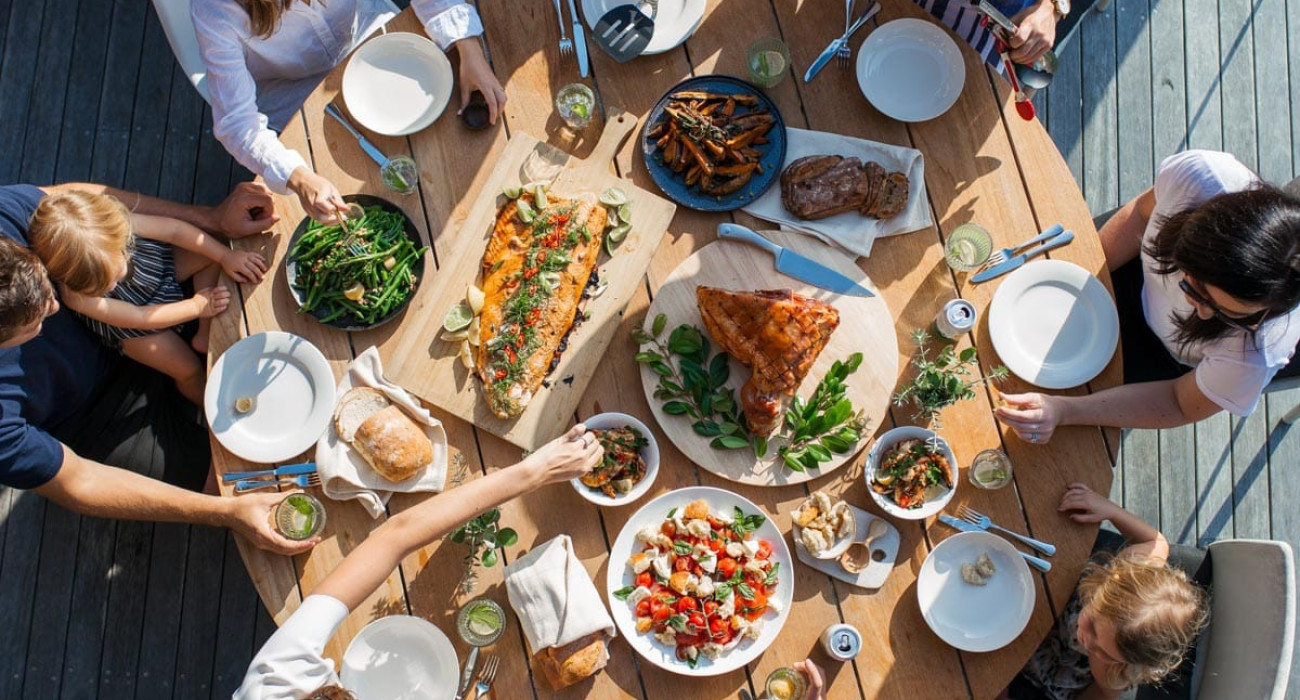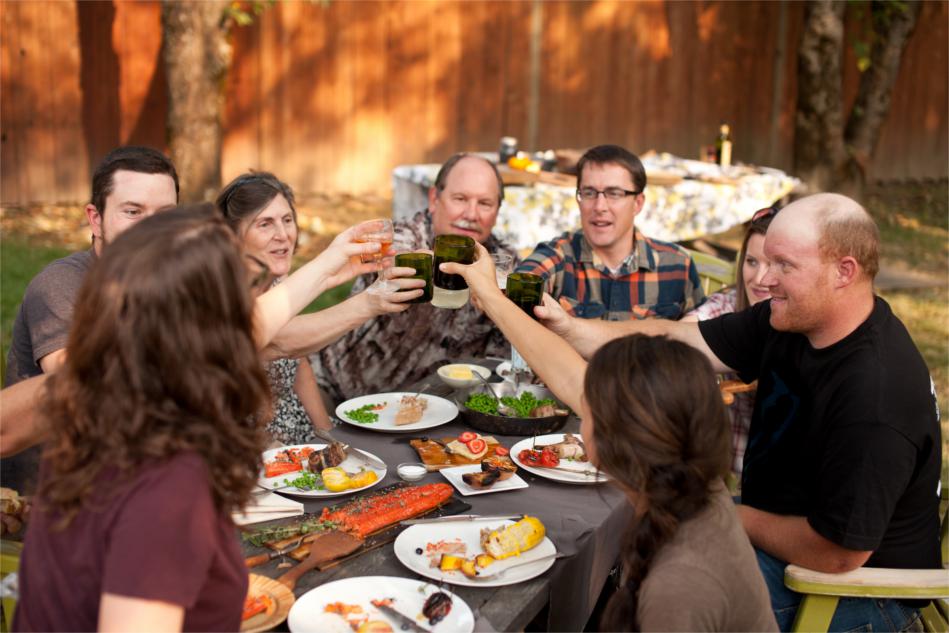
When travelers book a vacation rental, they’re often looking for more than just a place to sleep. They crave connection, comfort, and the chance to create meaningful memories. One of the most powerful ways these moments happen is through shared meals in vacation rentals. Whether it’s a family breakfast, a group barbecue, or a late-night snack around the table, food plays a key role in how guests bond and experience their stay.
In fact, psychologists have long studied the link between dining and human connection. Shared meals encourage trust, enhance group bonding, and even increase overall happiness levels. In a vacation rental setting, these effects are magnified because the space is designed to bring people together. Below, we’ll explore eight psychological benefits of shared meals in vacation rentals, why they matter, and how both travelers and hosts can make the most of them.
1. Strengthening Social Bonds
At its core, eating together is one of the oldest social rituals in human history. Studies show that families who share meals are more connected and experience better communication source. The same applies to groups traveling together. Shared meals in vacation rentals provide a natural way for guests to bond without needing planned activities or structured events.
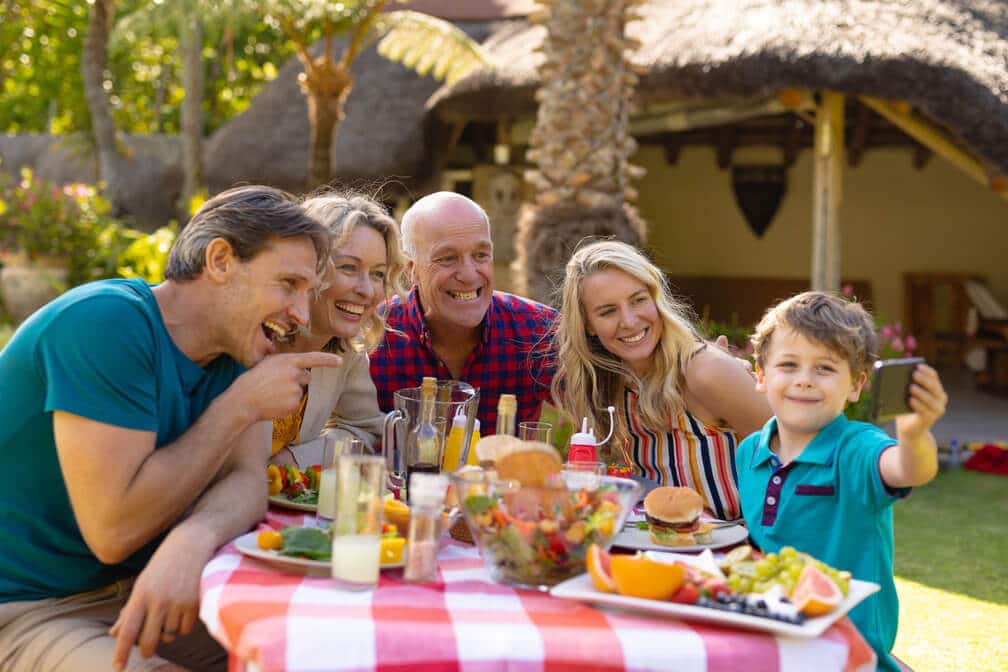
Imagine a group of college friends reuniting after years apart. The conversation may feel awkward at first, but once they gather in the kitchen to chop vegetables, stir sauces, and sit down for dinner, the walls come down. Food becomes the social glue, reminding everyone of their shared history and friendship.
2. Creating a Sense of Belonging
Psychologically, eating with others creates a feeling of belonging. Researchers at the University of Oxford found that people who regularly share meals feel happier and more supported in life source. This is why shared meals in vacation rentals can be so impactful—they transform a rented property into a temporary home.
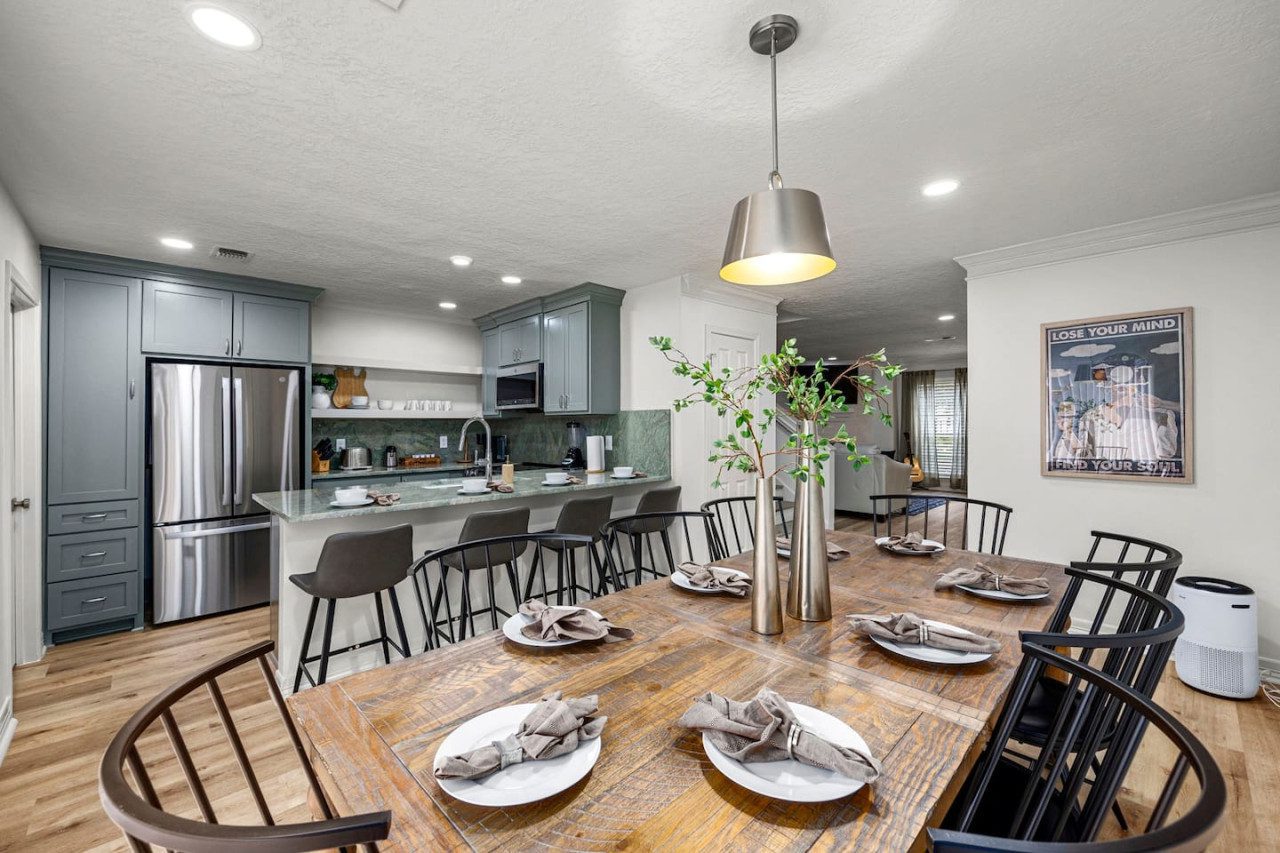
Guests aren’t just travelers passing through. They become a unit, whether family or friends, gathered around a table where everyone has a place. That feeling of “home” in a strange place is a key reason vacation rentals are so popular compared to hotels.
3. Reducing Stress and Anxiety
Traveling can be stressful, even during vacations. Navigating airports, unfamiliar roads, and tight schedules can take a toll on mental health. Shared meals in vacation rentals act as an anchor, offering comfort and familiarity.
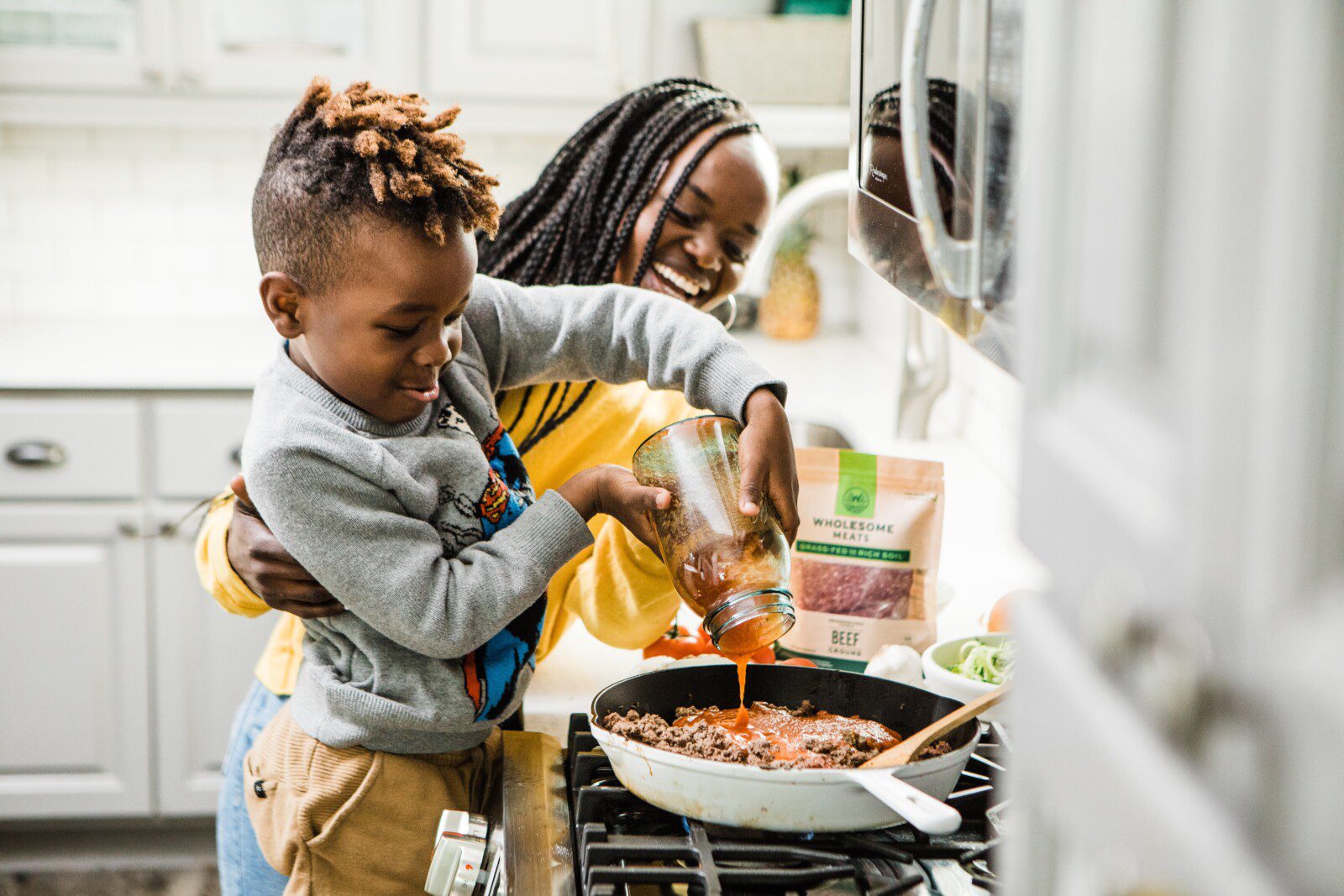
Cooking or eating together slows the pace, helps people relax, and signals to the brain that it’s time to rest. Even simple meals, like making pancakes together in the morning or enjoying a sunset drink on the patio, provide grounding rituals that ease travel stress. The act of preparing food also releases dopamine, a chemical tied to pleasure and relaxation, making the entire process therapeutic.
4. Enhancing Memory-Making
Psychology tells us that our brains link strong emotions to vivid memories. Shared meals are often joyful, laughter-filled experiences that stand out in our minds. A barbecue on the patio, a pancake breakfast with kids, or a wine-filled dinner with friends becomes more than just eating—it becomes part of the vacation story.

That’s why shared meals in vacation rentals often form the highlight of trips, remembered long after the journey ends. A traveler may forget the exact name of a museum they visited, but they’ll always recall the night the group cooked a giant seafood boil together and laughed until midnight.
5. Encouraging Cultural Exchange
Vacation rentals frequently bring together guests from different backgrounds. Cooking or eating together becomes a form of cultural exchange, where each person might contribute a recipe, tradition, or flavor from their heritage.

For example, one guest might teach others how to roll sushi while another shares a family recipe for Italian pasta sauce. These exchanges make shared meals in vacation rentals more than nourishment—they’re about sharing identities, passing down traditions, and celebrating diversity. In multicultural groups, meals often become the highlight of travel because they allow people to learn in a fun, flavorful, and interactive way.
6. Promoting Mindful Eating
Unlike restaurants, vacation rentals encourage guests to slow down and savor their meals. Cooking in a rental kitchen or setting the table outdoors creates an intentional, home-like atmosphere. This naturally promotes mindful eating, which has been linked to improved mental health and well-being source.

With shared meals in vacation rentals, the focus isn’t just on what’s being eaten but also on the conversations, laughter, and stories unfolding at the table. Guests are more likely to notice the flavors, appreciate the preparation, and enjoy the company—an experience far richer than grabbing takeout on the go.
7. Boosting Cooperation and Teamwork
Preparing and sharing food isn’t just about nourishment—it’s a collaborative effort. From grocery shopping to chopping vegetables to cleaning up, shared meals in vacation rentals encourage teamwork.
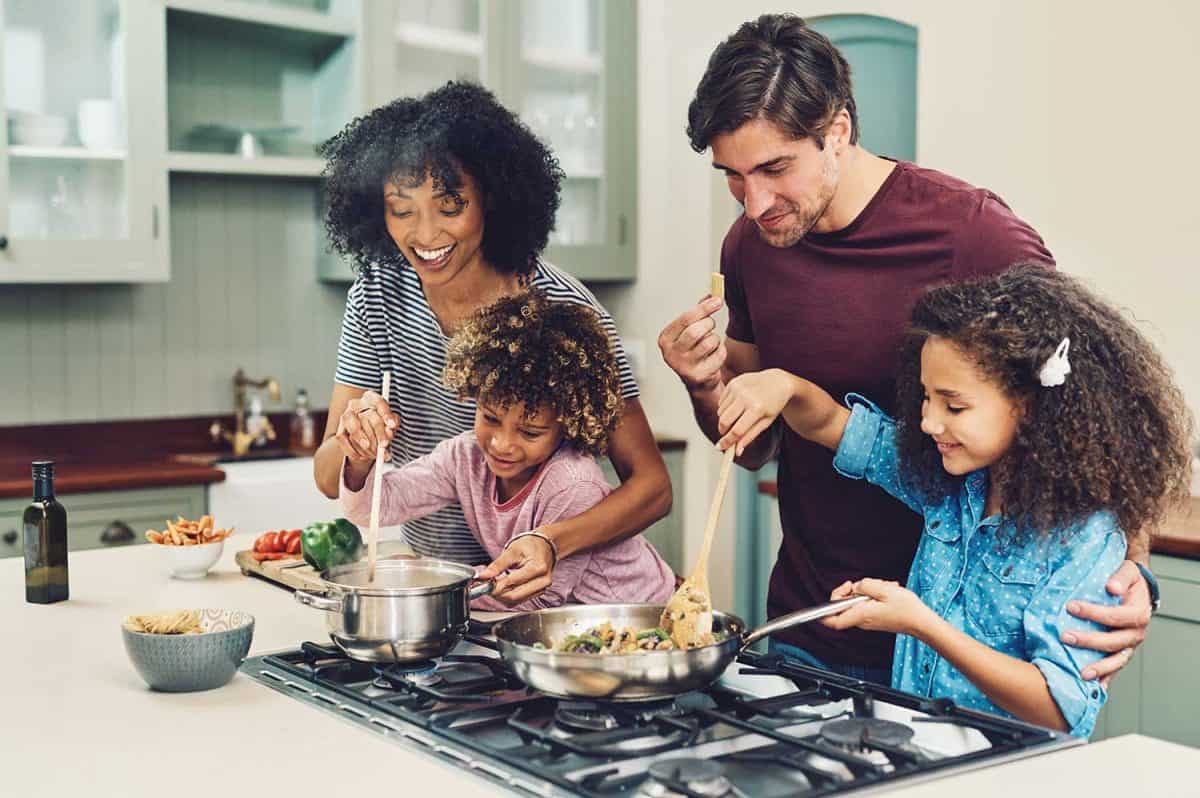
This cooperative spirit is especially valuable for groups traveling together for the first time. It helps establish group roles, reduces conflict, and creates a sense of shared responsibility. For families with children, assigning small roles like setting the table or mixing ingredients can teach responsibility while keeping kids engaged. For adult groups, cooking becomes a ritual that strengthens trust and builds camaraderie.
8. Reinforcing Vacation Rental Value
Finally, there’s a practical angle. Guests who feel emotionally fulfilled by their dining experiences are more likely to leave positive reviews and return. Hosts who design spaces to support shared meals in vacation rentals—like large dining tables, outdoor kitchens, or cozy breakfast nooks—create psychological value beyond the basics of shelter.
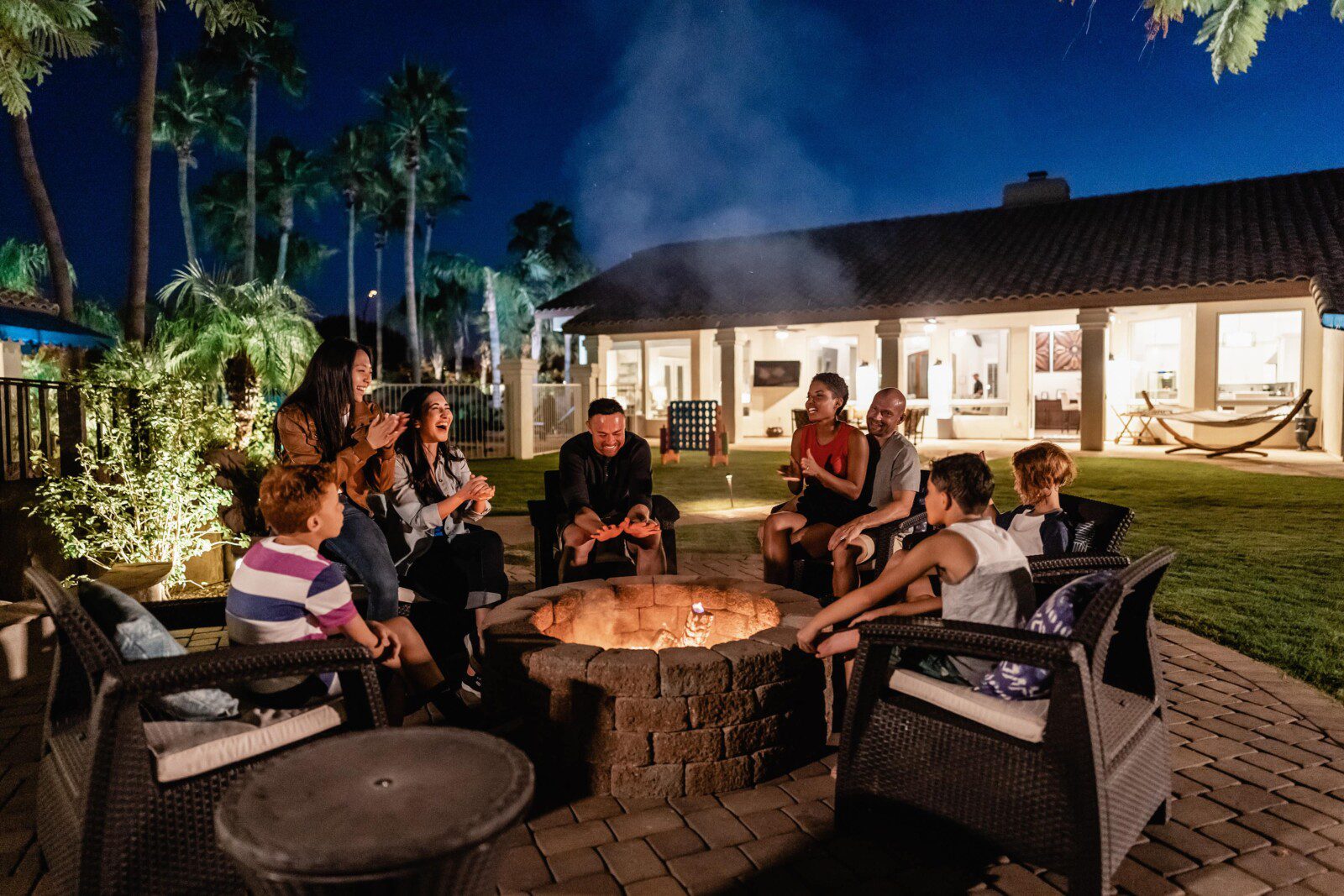
A property that encourages cooking and dining together becomes a destination, not just accommodation. Hosts who highlight these features in their listings often stand out in a crowded market, because travelers instinctively know that food-centered spaces lead to stronger memories.
Why This Matters for Hosts and Travelers
The psychology behind shared meals in vacation rentals reveals something deeper: food isn’t just about eating, it’s about connecting. For travelers, prioritizing meals together can turn a trip into a cherished memory. For hosts, highlighting the features that make shared meals easier—like spacious kitchens, barbecue areas, or family-style dining spaces—adds immense appeal to a listing.
Even subtle touches, such as providing a cookbook with local recipes or setting up an outdoor dining area, can enhance the guest experience. By making space for shared meals in vacation rentals, hosts create opportunities for joy and togetherness that guests will remember long after checkout.
Final Thoughts
Vacations are about collecting memories, not just destinations. By embracing the power of shared meals in vacation rentals, guests can deepen relationships and hosts can elevate their spaces. After all, when people look back on their trip, they may not remember every museum or landmark—but they’ll never forget that night everyone cooked pasta together, laughed until midnight, and felt like family.
In the end, food is never just food. It’s comfort, connection, and culture all served on one table. That’s why prioritizing shared meals in vacation rentals is one of the most powerful ways to transform an ordinary trip into an extraordinary one.
